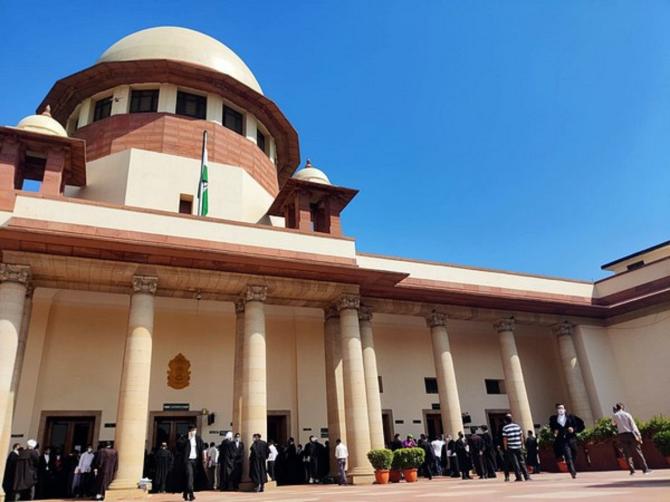The Centre has no intention to touch any special provisions of the Constitution related to the North East or any other region, Solicitor General Tushar Mehta told the Supreme Court on Wednesday, and deprecated any attempt to "create such apprehensions".

He made the submission before a five-judge constitution bench headed by Chief Justice DY Chandrachud, when advocate Manish Tewari said there are apprehensions that special provisions related to the North Eastern states may also be done away with in the manner in which Article 370 was abrogated.
Tewari, a Congress leader and Lok Sabha MP, was appearing for former Arunachal Pradesh MLA Padi Richo, who has filed an intervention application in a batch of petitions challenging abrogation of Article 370.
Interrupting Tewari, Mehta, appearing for the Centre said, "I have instructions to say this. This may be some kind of potential mischief. There is no apprehension and there is no need to create apprehensions.
"We must understand the difference between temporary and permanent provisions. The central government has no intention to touch any special provisions of the Constitution related to North Eastern and other regions."
Tewari said like Article 370 for the erstwhile state of Jammu and Kashmir, the sixth schedule of the Constitution envisages special provisions for North Eastern states.
"Even a slight apprehension in the periphery of India can have serious implications. This court is dealing with one such situation in Manipur," he added.
Tewari said he was not referring to the action of the current central government but was addressing the larger aspect at stake.
The bench, also comprising Justices Surya Kant, Sanjiv Khanna, BR Gavai and Surya Kant told Tewari why should the court deal with a petition which refers to apprehensions and anticipations.
"This is a constitution bench and we are dealing with a specific provision of Article 370. We should not expand the ambit of the question before the court based on anticipation and apprehensions," the bench said.
"When, as a constitutional principle, the solicitor general has informed us that the government has no such intention, why should we apprehend something at all? We should not enter this territory at all. Let's not focus on North East like this. The apprehensions have been allayed by the statement of the central government," CJI Chandrachud said.
The bench then immediately disposed of the intervention application after passing an order in which it recorded Mehta's submissions.
In its order, the bench said the intervention application has urged that apart from the provisions contained in Part XXI of the Constitution pertaining to Jammu and Kashmir, there are special provisions governing the North Eastern regions.
"Hence it is submitted that the interpretation by the court in Article 370 would impact other provisions. Solicitor General has submitted on specific instructions that the Union Government has no intention to affect or touch any of the special provisions applicable to North East regions or any other part of India," the bench said in its order.
It said the matter before it is confined to Article 370 and there is no commonality of interest in the intervention application and the case being heard.
"In any event, the solicitor general's statement on behalf of the Union of India, allays any apprehensions in this regard. The IA stands disposed of," the bench said.










